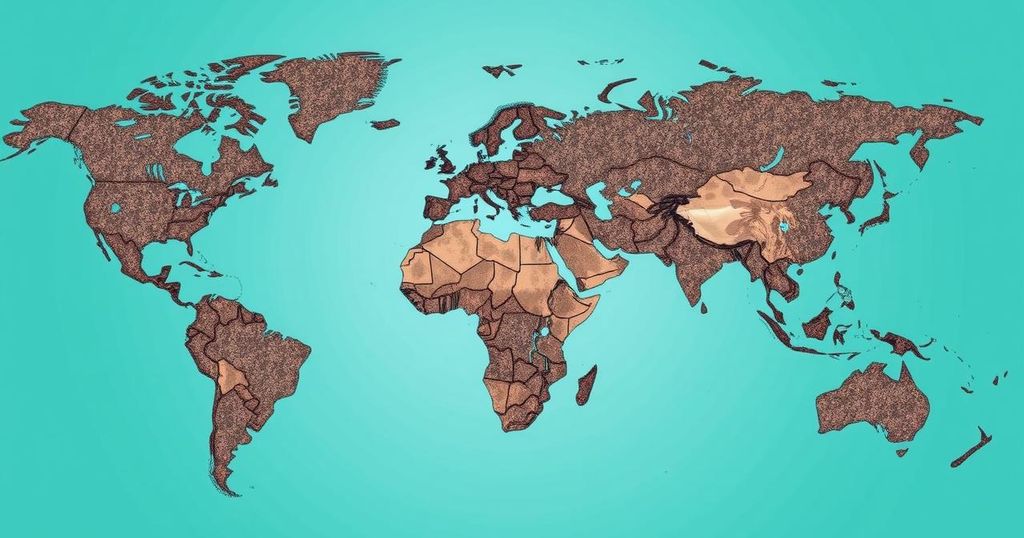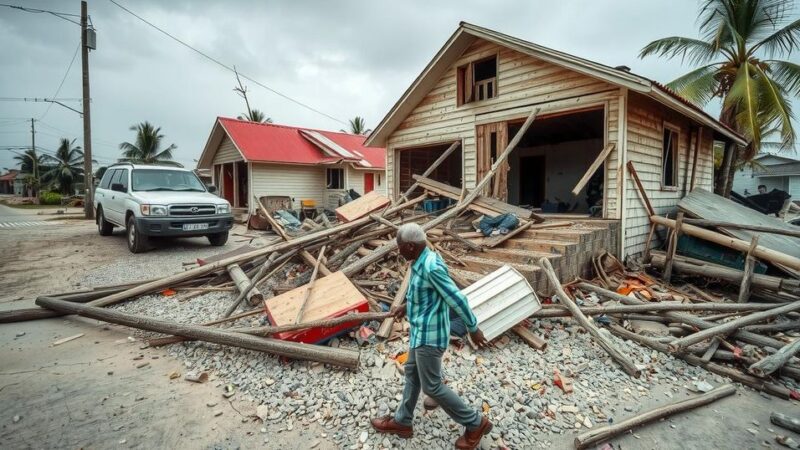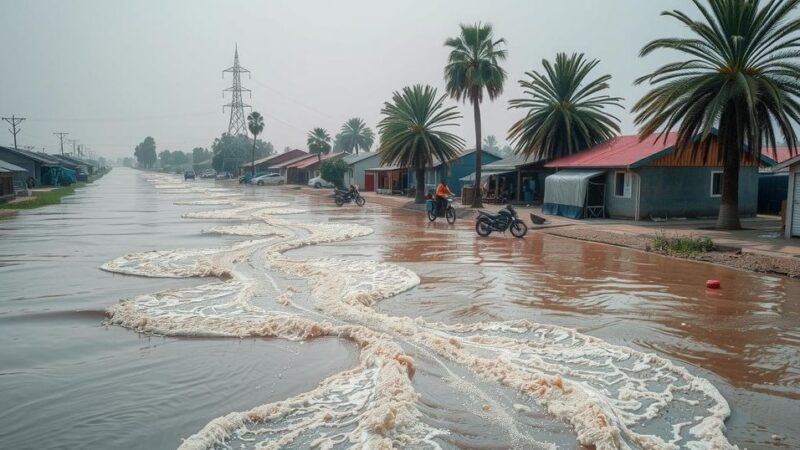In 2024, global health discussions were dominated by climate change effects, infectious disease resurgence, technological advancements in healthcare, women’s health challenges, workplace health impacts, and antimicrobial resistance threats. Reports indicated significant health equity gaps and emerging health crises, underscoring the necessity for coordinated global responses.
In 2024, global health remained a priority, significantly influencing discussions at prominent forums such as the World Economic Forum. The year spotlighted critical health challenges, including the effects of climate change, the resurgence of communicable diseases, the role of technology in healthcare enhancement, women’s health disparities, workplace health dynamics, and the persistent threat of antimicrobial resistance. Each of these topics underscores the complex interplay between health and societal well-being, necessitating coordinated action and awareness on a global scale.
The 2024 report entitled “Quantifying the Impact of Climate Change on Human Health” detailed alarming projections regarding climate risks. It highlighted that neglecting climate mitigation could lead to an estimated 14.5 million excess deaths and substantial economic repercussions totaling $12.5 trillion by 2050. The report emphasized extreme weather events, such as floods and droughts, which exacerbate health inequities, particularly affecting those with limited access to healthcare.
Moreover, the resurgence of communicable diseases such as measles, mpox, and dengue raised concerns. The World Health Organization (WHO) reported a 20% increase in measles cases globally in 2023, largely attributed to vaccine misinformation. Similarly, mpox was declared a public health emergency due to a new strain discovered in the Democratic Republic of Congo, while dengue cases doubled between January and September 2024.
On the technological front, advancements in generative AI have shown potential in enhancing healthcare delivery and management. Reports indicated successful applications of AI in diagnostics and treatment processes, while addressing the challenges faced by lower-income countries in consistently applying these innovations.
Women’s health emerged as a crucial focus area, highlighting the stark reality that, although women live longer than men, they endure a greater proportion of their lives in poor health. This disparity is linked to systemic barriers that hinder health equity.
The intersection of health and work was explored, considering the significant impact of workplace environments on mental health and overall well-being. Insights underscored the importance of executive leadership in fostering a culture of wellness in organizations.
Lastly, the issue of antimicrobial resistance (AMR) continued to pose a serious threat, prompting discussions at high-level meetings spearheaded by the United Nations. Commitments made included targets to reduce AMR-related fatalities by 10% by 2030 and financial pledges aimed at enhancing national action against drug resistance.
In conclusion, the health stories of 2024 reveal an urgent need for global collaboration and innovative actions to address multifaceted health challenges. By focusing on climate change impacts, infectious diseases, technological advancements, women’s health, workplace well-being, and antimicrobial resistance, stakeholders can work towards improved health outcomes worldwide.
The year 2024 was characterized by significant health challenges shaped by climate change, technological advancements, and health equity discussions, particularly concerning women’s health and antimicrobial resistance. Addressing these issues requires a comprehensive understanding of their interconnectedness and implications for global health systems.
The 2024 health landscape highlighted critical issues ranging from climate change impacts to the rise of infectious diseases and antimicrobial resistance. It necessitated a concerted effort among global stakeholders to enhance healthcare resilience and equity. By prioritizing innovative solutions and inclusive health conversations, a healthier future can be forged.
Original Source: www.weforum.org







